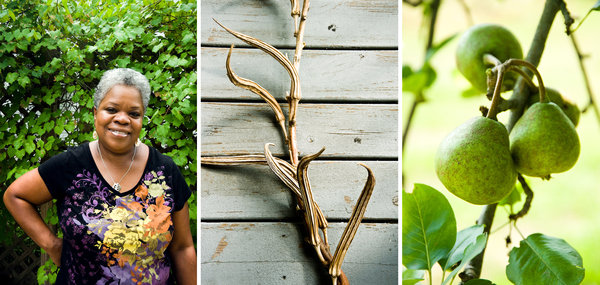Nation's Crime Rates Tied To Belief In Hell | Can Plants Hear Sound? | African American Plants Heritage
/French Roast News
Anne is reading …
A study at University of Oregon’s Cultural and Morality Lab confirms that a review of 26 years of data involving 143,197 people in 67 countries confirms that a nation’s strong belief in hell predicts lower crime rates. Conversely, a strong belief in heaven predicts higher crime rates, explains Azim F. Shariff, professor of psychology and director of the research.
Religious belief generally has been viewed as ‘a monolithic construct’, Shariff said. ‘Once you split religion into different constructs, you begin to see different relationships. via Daily Mail UK
In 2003, Harvard researchers Robert J. Barro and Rachel M. McCleary found that gross domestic product was higher in developed countries when people believed in hell more than in heaven.
Pillamina Hits the Road

WomenPatriots writes that Planned Parenthood’s Pillamina will be one step behind Mitt Romney’s campaign road trip. LifeSite News says that Pillamina is “stalking” Romney.
‘Pillamina’ last appeared to celebrate the Obama Administration’s announcement of a no co-pay for birth control pills — a decision that has caused deep controversy among religious leaders.
Secret Lives of Plants
 Researchers in Australia have documented clicking sounds in the roots of corn saplings. Researchers at Bristol University then suspended young roots of plants in water, exposing them to a continuous noise at 220Hz, the frequency emitted by the corn sapling roots. The scientists confirm that plants grew towards the sound.
Researchers in Australia have documented clicking sounds in the roots of corn saplings. Researchers at Bristol University then suspended young roots of plants in water, exposing them to a continuous noise at 220Hz, the frequency emitted by the corn sapling roots. The scientists confirm that plants grew towards the sound.
In 2009 researchers at Britain’s Royal Horticultural Society exposed tomato plants to male and female voices, attached to their pots and reading poetry and Shakespeare.
The tomato plants grew 2 inches taller in response to a female voice but grew less than the control group in response to male voices. Read on in AOC Apple Valley.
Seeds of Survival
 Kathe Hambrick-Jackson, of the River Road African American Museum in Louisiana, raises foods that would have been familiar to slaves, like okra and peas. Randy Harris for The New York TimesLouisiana’s Freedom Garden attempts to educate young African American kids about key foods that were staples for runaway slaves. Knowing that kids use the garden as a shortcut, Kathe Hambrick-Jackson intercepts them with signs at every eye level to educate them about their history.
Kathe Hambrick-Jackson, of the River Road African American Museum in Louisiana, raises foods that would have been familiar to slaves, like okra and peas. Randy Harris for The New York TimesLouisiana’s Freedom Garden attempts to educate young African American kids about key foods that were staples for runaway slaves. Knowing that kids use the garden as a shortcut, Kathe Hambrick-Jackson intercepts them with signs at every eye level to educate them about their history.
The New York Times profiles the River Road African American Museum, Michael W. Twitty’s African American Heritage Collection, and the dwindling data on African-American farms in America in Planting the Seeds of Survival.
Many African Americans associate farming and working the land with slavery. Family battles also cause land to go into foreclosure, says the Emergency Land Fund, a black farm and property preservation group.
Anne of Carversville
 Asa Engström | Chris Craymer | Glamour UK July 2012 | I’m with the Band
Asa Engström | Chris Craymer | Glamour UK July 2012 | I’m with the Band
AOC Apple Valley
Dasha Z & Liza S | Nikolay Biryukov | Interview Russia | Sustainable Fashion
Camille Rowe | Marcus Mam | Tank’s Summer 2012 | ‘Hello Sunshine’
Kel Markey & Yuri Pleskun | Boo George | Interview Russia June/July 2012
Karen Elson | Tom Craig | Vogue UK July 2012 | Don’t Mess with Texas
Queeny Van der Zande | Edouard Plongeon | Jalouse June 2012 | ‘On My Way To’
Sensuality News
SN Living
Naty Chabanenko | Kevin Sinclair | How to Spend it Online June 2012 | Swell Belle
Therese Alexandersson | Jimmy Backius | Elle Sweden July 2012 | A Winter In Mallorca
Joan Smalls & Karlie Kloss | Steven Meisel | W July 2012
Samantha Gradoville | David Bellemere | Harper’s Bazaar UK July 2012 | ‘The Life Aquatic’
Carmen Kass | Yelena Yemchuk | 25 Magazine Spring 2012 | A Transformer
Kat Cordts | Frauke Fischer | Miss | Creme Fresh
SN Provocateurs

